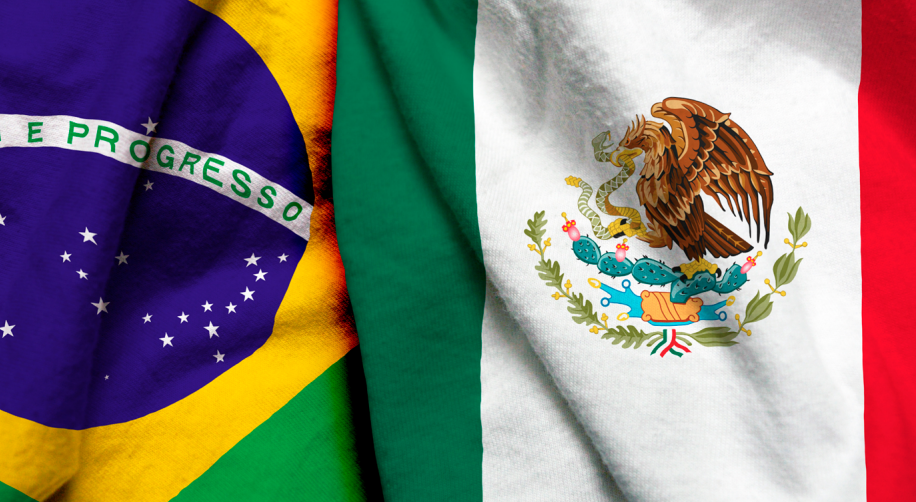The governments of Mexico and Brazil are seeking strategies to tackle tariffs imposed by the United States.
To this end, the Brazilian Ministry of Foreign Affairs has suggested that synergies between these two Latin American countries could promote greater bilateral market openness.
A mission with 198 representatives from Brazilian companies will participate in the Mexico-Brazil Business Forum 2025 this Wednesday and Thursday in Mexico City.
Strategies to tackle tariffs
In July of this year, the United States announced tariffs of up to 50% on Brazilian products—effective August 6—affecting strategic sectors such as coffee, beef, fruit, textiles, and footwear.
The measure provides for the exemption of almost 700 items representing 45% of Brazilian exports (US$17.9 billion) to the United States (US$40.4 billion in 2024).
However, around US$22.5 billion of Brazilian exports (55% of the total) remain subject to the tariff hike.
The impact is significant, as the United States is traditionally Brazil’s second largest trading partner.
“It is in this context that the Brazil-Mexico Institutional and Business Mission emerges as a strategic initiative for both countries. By strengthening their trade ties, the two nations can not only mitigate the impacts of US tariffs, but also build a solid and sustainable partnership for the future,” said the Brazilian Ministry of Foreign Affairs in a fact sheet released together with other government entities.
Multilateralism
In response to the tariffs, Brazil launched the Sovereign Brazil Plan on August 13. It includes strengthening production, labor protection, commercial diplomacy, and multilateralism. In addition, it allocates R$30 billion in credits, tax exemptions, and government purchases for small businesses.
Brazil also seeks to diversify exports to other markets. To this end, Apex Brasil provides market intelligence and trade promotion, connecting companies with international buyers.
On the other hand, U.S. customs is applying tariffs of 35% to Canada and 25% to Mexico on products outside the USMCA. The measure responds to the alleged lack of cooperation on fentanyl and migration. In addition, it sets tariffs of 25% on light vehicles without U.S. content and 50% on steel, aluminum, and copper for both countries.

